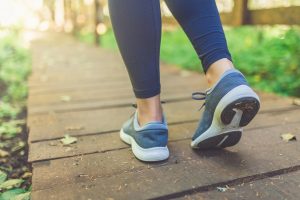 Obstructive sleep apnea can play a significant role in a person’s life. Aside from robbing sleep and leading to fatigue, grogginess, and a cloudy brain, it can influence heart and brain health.
Obstructive sleep apnea can play a significant role in a person’s life. Aside from robbing sleep and leading to fatigue, grogginess, and a cloudy brain, it can influence heart and brain health.
It’s caused by a lack of oxygen during sleep that leads to “micro-awakenings” every night. Sufferers don’t always realize that they are being awoken – sometimes hundreds of times per night – or that they are struggling to breath.
Advertisement
However, a new statistical analysis suggests that there could be a natural method to prevent the condition: movement.
Researchers at Brigham and Women’s Hospital looked at data from approximately 130,000 women and men who participated in two long-term studies. Sleep apnea was most common in women, adults over 65, and those with a body mass index (BMI) that categorized them as overweight or obese.
There was also an association with sedentary lifestyles. The data revealed that people who were more active and had less sedentary time were less likely to suffer from obstructive sleep apnea.
Activity is closely associated with better quality sleep, heart health, and healthier weight (or BMI).
Getting more exercise might help sleep in several ways. One is that it tires you out. Your body is in more need of rest and recovery when it expends energy. Even a relatively short walk every day can set the stage for better quality sleep.
Advertisement
The movement also gets your heart pumping, opens up blood vessels, and works to improve heart health. There are strong associations between heart health, weight, and sleep. The movement addresses many of the potential root causes of sleep apnea.
Cutting down on sedentary time will likely require a concentrated effort to alter your lifestyle. Instead of seeking relaxing time on the sofa, scheduling time on your feet will be required.
Try carving out little chunks throughout the day for movement. Get up from your desk for a little walk every hour or so. Get up during commercial breaks while watching television or running errands on foot and leave the car at home.
